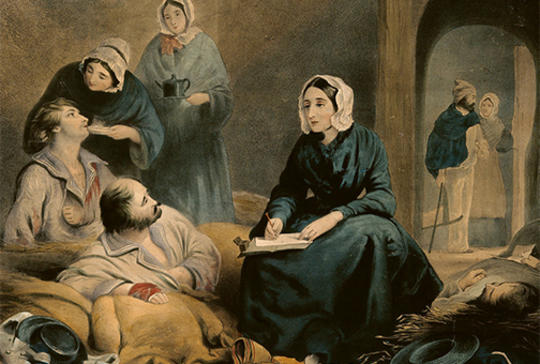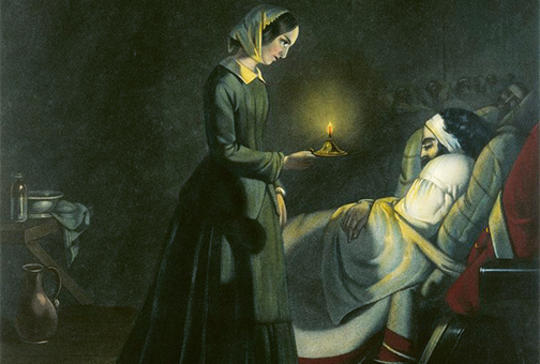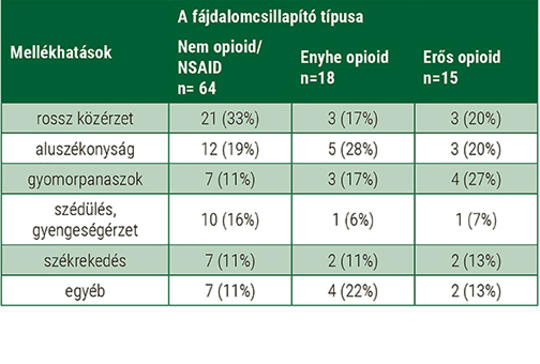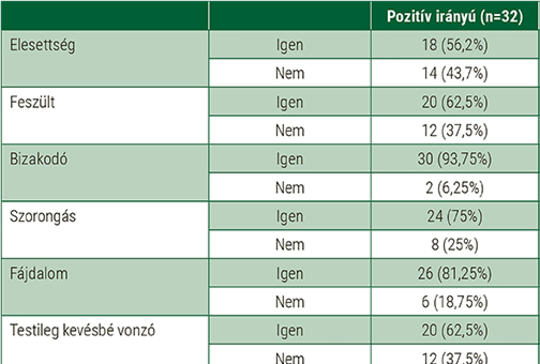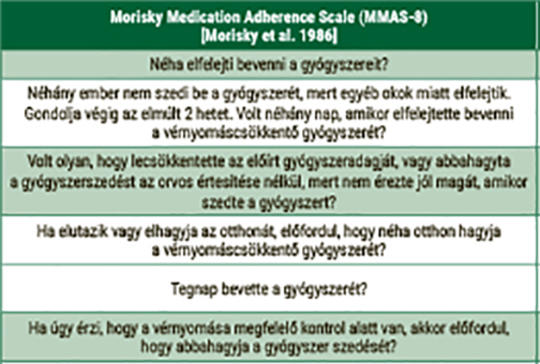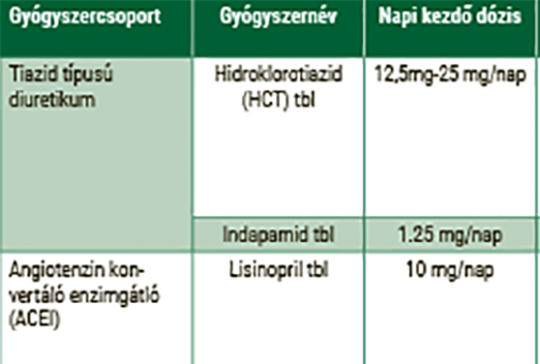The eLitMed.hu medical portal uses computer cookies for convenient operation. Detailed information can be found in the Cookie-policy.
Journal of Nursing Theory and Practice - 2020;33(2)
Content
[Florence Nightingale’s life and work – Florence Nightingale’s message for Today’s Nursing Students]
[The International Nurses Day is organized every year on May 12. This year is special, because Florence Nightingale, who is one of the nurses’ ideal, will have the 200th anniversary of her birth. The nurse’s life, who is also known as the „lady with the lamp”, wasn’t easy, because she needed to face many things/issues. However, she achieved the respect of the nurse profession and the appreciation of the nurses. She has also fought for women rights and studied a lot – thanks for those, she worked out statistic methods that nowadays we still use. As a result/because of her memorandums, she allocated many statistical coherences that are still valid. She confirmed with numerical dates, how big the connection between death and hygiene circumstances is. To her advice, more nursing educations were started, as well as the hospital systems were reformed by her. One of her greatest work is the Notes on nursing, which is counted until today as the number one handbook of nursing.]
[The Effectiveness of Pain Control in Cancer]
[Introduction: Cancer diseases pose a serious public health issue nowadays, as they are among the leading causes of death. As today it is possible to live with this disease for a long time, the quality of life, which is greatly affected by pain, becomes a very important factor. Objective: The purpose of the research is to investigate and explore potential existing problems in the field of cancer pain relief in Hungary and to propose solutions to these problems. In our questionnaire survey, we asked patients suffering from tumors who were in pain and living their lives at home. The research was an anonymous cross-sectional study using descriptive and comparative statistical methods. The average age of respondents was 55 and most of them were women. Answers showed that primary tumors appear mostly in breasts (n=25) or the lungs (n=13). Metastasis developed by almost 30% of the patients. 42% of the respondents experienced severe pain (VAS ≥7 point), which they estimated to last for 1-2 (n=40) or rather 4-5 hours daily (n=30). Almost two third of the respondents were using products containing NSAID (n=64). The number of mild (n=18) versus strong painkiller (n=15) users were almost equal. There was a significant difference between groups of patients experiencing “mild-medium” (p=0,01) versus “mild-strong” pains (p=0,004) due to the usage of medication containing stronger opioids. From this revealed that individuals with greater pain used potent analgetics. More than half of the patients use some sort of sleep or relax aid as a supplement to their medication. Patients with metastasis (n=28) use strong (n=7) as well as mild analgesics (n=10) in greater numbers than those without metastasis. The results reveal that in Hungary, relatively few patients with cancer diseases use strong opioid-containing drugs despite of the fact that their pains are severe. Therefore, a nearly precise estimate of pain levels would be important. Fear of side effects is often unjustified and cannot limit the choice of appropriate therapy. ]
[Evaluation of the Quality of Life of Patients with Malignant Breast Cancer after Surgery]
[In the morbidity statistics, breast cancer is ranked first in both developed and developing countries. To map the quality of life after surgery of women with malignant breast cancer, which mainly involved the comparison of different age groups and changes in social relations. The survey was conducted in November 2017 at the National Institute of Oncology using a questionnaire method, in which 70 people participated. Based on age-disaggregated data, the over-60s reported more psychiatric symptoms than the younger group. During the course of their illness, many of the socially altered women in their lives were living alone and reporting a lower quality of life. In the absence of family support, it would be extremely beneficial to increase the opportunities available for women to reintegrate into society as soon as possible. ]
[Survey of Medication Habits in Hypertensive Adults]
[Hypertension is the best known risk factor in development of cardiovascular diseases and stroke. Survey has assessed –in hypertensive patients over 40, - the illness representation, lifestyle and medicine taking habits. Quantitative, cross-section descriptive research was conducted in 2017 with online questionnaire among hypertensive people over 40 (n=267) using shortened version of Brief Illness Perception Questionnaire, Morisky Medication Adherence Scale (8-item) and our questionnaire. Therapy adherence is typical for older individuals in surveyed population. (r= 0,26; p<0,001). Who were advised by general practitioners (GP) to implement lifestyle changes show more inclination following therapy. (p=0,032). Those with higher blood pressure (r-0,18; p=0,003) has harder time living with hypertension. (r=0,15; p=0,014). Quality of living with hypertonia and therapy adherence can be influenced by health behaviour and the information provided by general practitioners (GP). Beside the, general practitioners (GP) advanced practice nurse can have significant role in increasing the level of health behaviour and therapy adherence. ]
[The role of APN in the Care of Patients with High Blood Pressure]
[Internationally the role of Advanced Practice Nurses (APN) has grown a lot in the treatment for high blood pressure. The tasks of Advanced Practice Nurses with an advanced degree include the observation, following, diagnostics, medicinal treatment, health education, education of patients, coordination of care, checking of performance and improvement of quality. In Hungary the family doctors do the care of people with hypertonia in the primary care. Because of the number of patients who must be treated every day comes less time per capita in the care. For a high number of acute patients must be cared and for this reason less time remains for the care of chronic patients. In Hungary the education for Advanced Practice Nurse (APN) with an advanced degree has started in autumn 2017. The first of these nurses will get out of the education in February 2019. Due to their education they will be able to care acute illnesses in practices of family doctors and in communities of practice. Besides they will be able to explore, care and follow chronic patients. ]
1.
Clinical Neuroscience
Is there any difference in mortality rates of atrial fibrillation detected before or after ischemic stroke?2.
Clinical Neuroscience
Factors influencing the level of stigma in Parkinson’s disease in western Turkey3.
Clinical Neuroscience
Neuropathic pain and mood disorders in earthquake survivors with peripheral nerve injuries4.
Journal of Nursing Theory and Practice
[Correlations of Sarcopenia, Frailty, Falls and Social Isolation – A Literature Review in the Light of Swedish Statistics]5.
Clinical Neuroscience
[Comparison of pain intensity measurements among patients with low-back pain]1.
Clinical Neuroscience Proceedings
[A Magyar Stroke Társaság XVIII. Kongresszusa és a Magyar Neuroszonológiai Társaság XV. Konferenciája. Absztraktfüzet]2.
3.
Journal of Nursing Theory and Practice
[A selection of the entries submitted to the literary contest "Honorable mission: the joys and challenges of our profession" ]4.
Journal of Nursing Theory and Practice
[End of Life and Palliative Care of Newborns in the Nursing Context]5.
Journal of Nursing Theory and Practice
[Aspects of Occupational Health Nursing for Incurable Patients ]